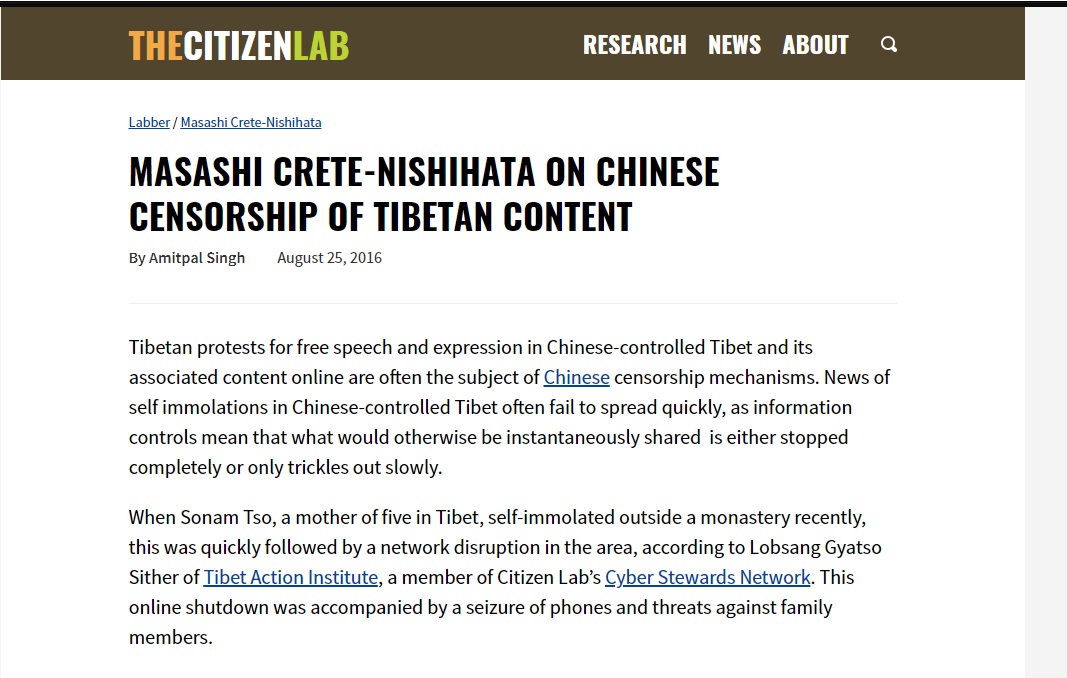MASASHI CRETE-NISHIHATA ON CHINESE CENSORSHIP OF TIBETAN CONTENT
Tibetan protests for free speech and expression in Chinese-controlled Tibet and its associated content online are often the subject of Chinese censorship mechanisms. News of self immolations in Chinese-controlled Tibet often fail to spread quickly, as information controls mean that what would otherwise be instantaneously shared is either stopped completely or only trickles out slowly.
When Sonam Tso, a mother of five in Tibet, self-immolated outside a monastery recently, this was quickly followed by a network disruption in the area, according to Lobsang Gyatso Sither of Tibet Action Institute, a member of Citizen Lab’s Cyber Stewards Network. This online shutdown was accompanied by a seizure of phones and threats against family members.
In an interview with the Daily Dot, Citizen Lab Research Manager Masashi Crete-Nishihata commented on the challenges Tibetans face in using social media and other online tools to spread content considered politically sensitive by the Chinese government. “Chinese applications and social media platforms censor and monitor Tibetan content. Apps like WeChat must conform to Chinese law and regulations around content controls,” said Crete-Nishihata. Though messaging applications are available to Tibetans, popular platforms like WeChat have their servers located in China, meaning data can be combed through by government officials, and even censored.



